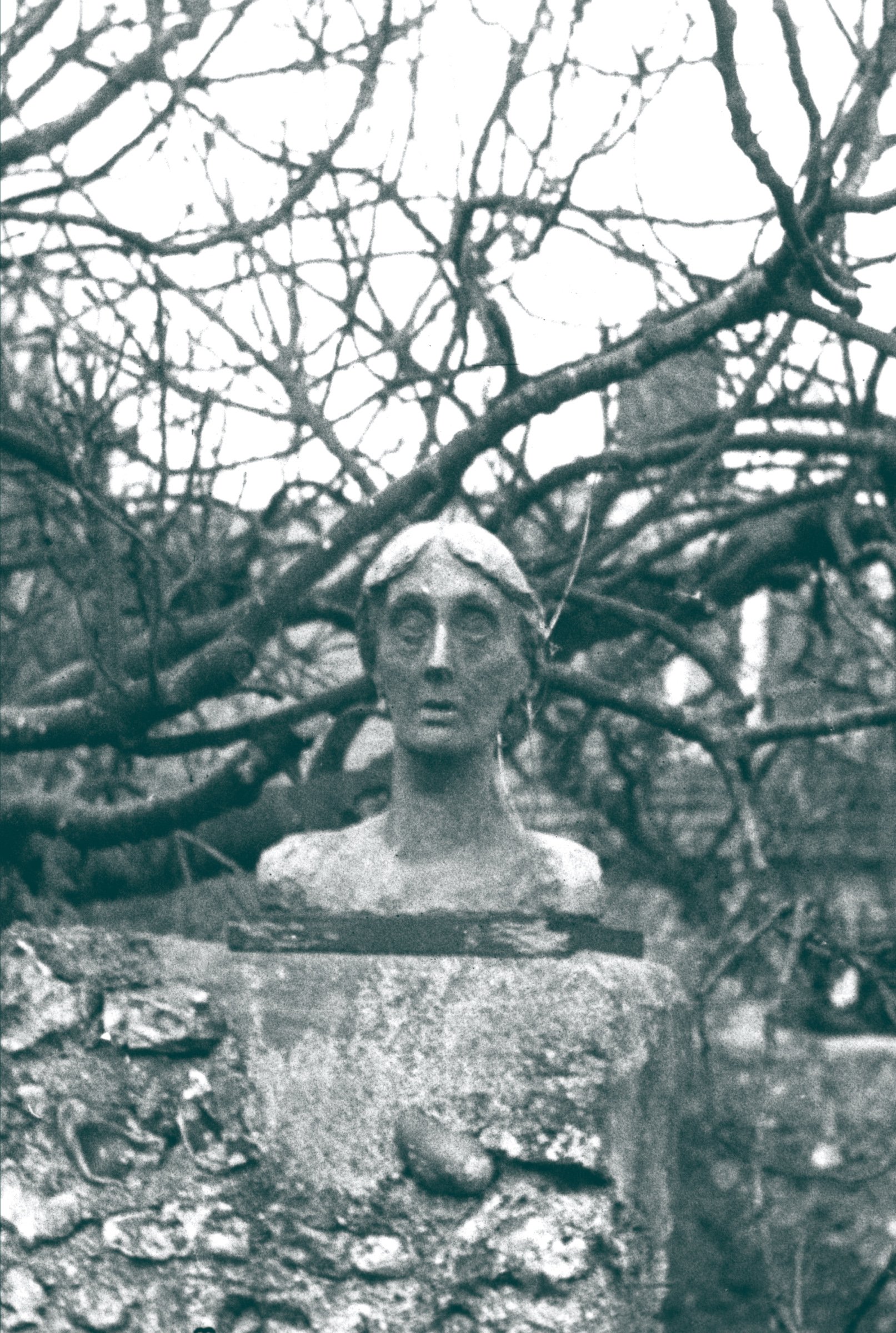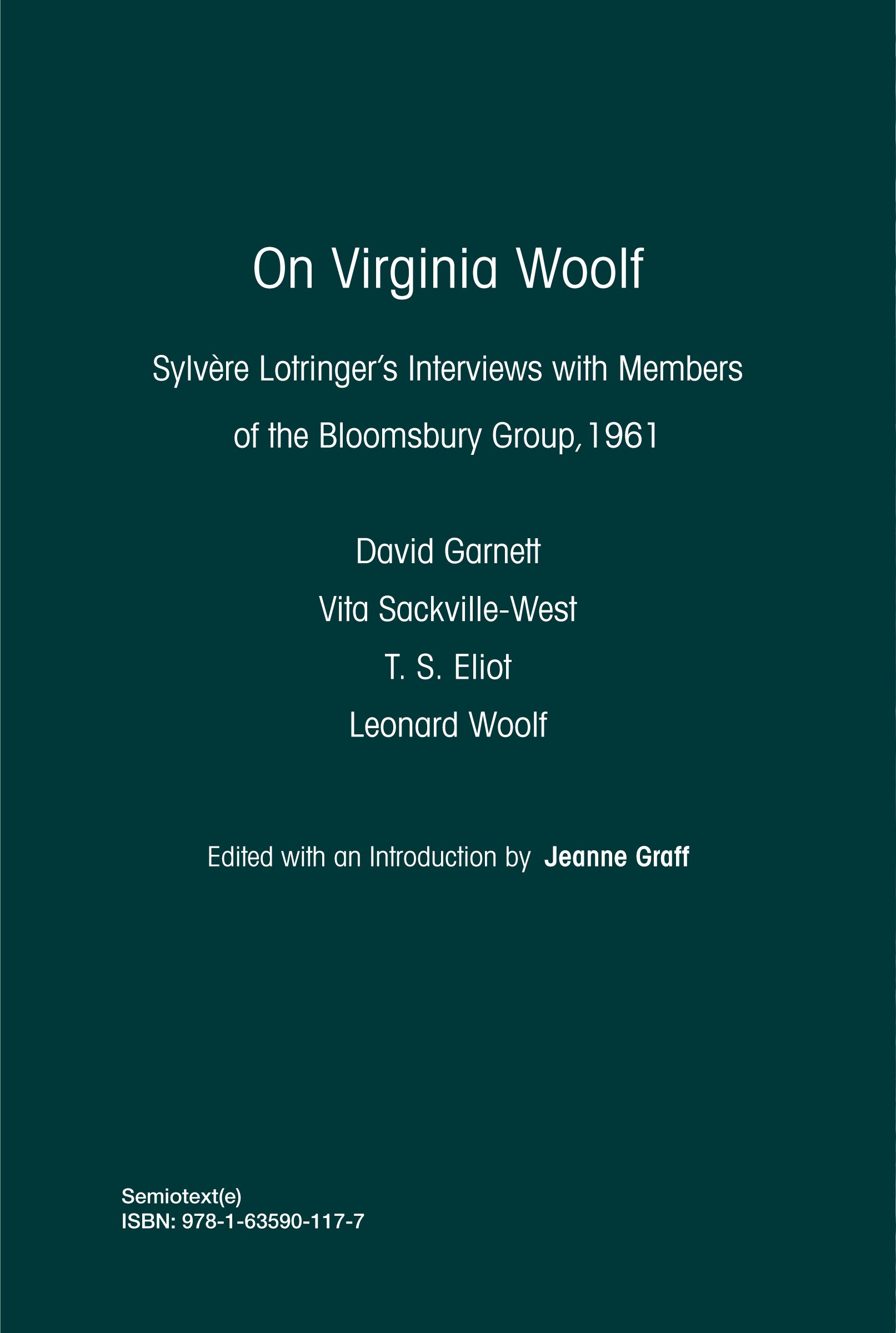 Image 1 of 2
Image 1 of 2

 Image 2 of 2
Image 2 of 2



On Virginia Woolf: Sylvère Lotringer’s Interviews with Members of the Bloomsbury Group, 1961
By Sylvère Lotringer
Edited by Jeanne Graff
SYLVÈRE LOTRINGER: Could you try to describe a special moment? If one doesn’t want to do a biography to sum up a life—it doesn’t seem to me that Virginia Woolf liked this kind of biography, this skeleton that remains of one. … Try to describe her, but above all, try to bring her back to life.
In April 1961, while on a student-exchange year in Scotland, Sylvère Lotringer proposed to cover the twentieth anniversary of Virginia Woolf’s death for the Parisian literary monthly Les lettres françaises. Riding by Vespa to London, Hilton Hall, and Sissinghurst Castle, Lotringer sought out a who’s who of Woolf’s living contemporaries from the Bloomsbury group—the early twentieth-century modernist literary circle of which she was “essentially the essence,” as T. S. Eliot fondly reminisces here. In addition to Eliot, Lotringer interviewed Woolf’s husband Leonard Woolf, with whom he would become close, and the authors David Garnett and Vita Sackville-West. “What I’d really like to get across is her exquisite personality,” Sackville-West, the very inspiration for Woolf’s character Orlando, intimated to Lotringer. “She terrified everyone.”
Just twenty-two at the time, Lotringer would go on to complete a doctoral dissertation on Woolf, supervised by Roland Barthes and Lucien Goldmann, before moving to the United States in 1972 and subsequently founding Semiotext(e). For the first time ever, On Virginia Woolf publishes Lotringer’s interview transcripts (and documentary photographs) from 1961, all of which editor Jeanne Graff rediscovered among his papers at NYU’s Fales Library and devotedly transcribed in 2024. This book is a poetic tribute from Graff to her late friend and mentor; a portrait of Lotringer as a young intellectual, cultivating the art of the interview; and a unique addition to scholarship on Virginia Woolf.
84 pp.
By Sylvère Lotringer
Edited by Jeanne Graff
SYLVÈRE LOTRINGER: Could you try to describe a special moment? If one doesn’t want to do a biography to sum up a life—it doesn’t seem to me that Virginia Woolf liked this kind of biography, this skeleton that remains of one. … Try to describe her, but above all, try to bring her back to life.
In April 1961, while on a student-exchange year in Scotland, Sylvère Lotringer proposed to cover the twentieth anniversary of Virginia Woolf’s death for the Parisian literary monthly Les lettres françaises. Riding by Vespa to London, Hilton Hall, and Sissinghurst Castle, Lotringer sought out a who’s who of Woolf’s living contemporaries from the Bloomsbury group—the early twentieth-century modernist literary circle of which she was “essentially the essence,” as T. S. Eliot fondly reminisces here. In addition to Eliot, Lotringer interviewed Woolf’s husband Leonard Woolf, with whom he would become close, and the authors David Garnett and Vita Sackville-West. “What I’d really like to get across is her exquisite personality,” Sackville-West, the very inspiration for Woolf’s character Orlando, intimated to Lotringer. “She terrified everyone.”
Just twenty-two at the time, Lotringer would go on to complete a doctoral dissertation on Woolf, supervised by Roland Barthes and Lucien Goldmann, before moving to the United States in 1972 and subsequently founding Semiotext(e). For the first time ever, On Virginia Woolf publishes Lotringer’s interview transcripts (and documentary photographs) from 1961, all of which editor Jeanne Graff rediscovered among his papers at NYU’s Fales Library and devotedly transcribed in 2024. This book is a poetic tribute from Graff to her late friend and mentor; a portrait of Lotringer as a young intellectual, cultivating the art of the interview; and a unique addition to scholarship on Virginia Woolf.
84 pp.